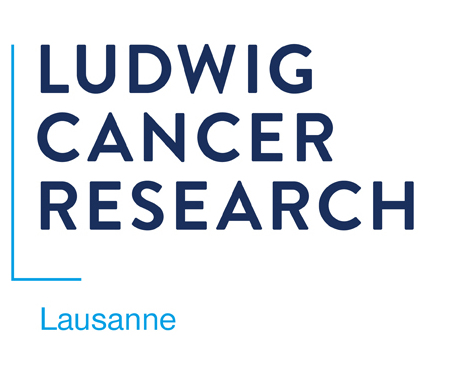Our focus
We aim to acquire missing knowledge to find better ways to fight cancer. Our areas of expertise are immunology and immunotherapy. We are particularly interested in myeloid cells as targeting them could overcome limitations of current treatment options.
Our projects
The Pittet lab is developing two main research axes: Real-Time PK/PD imaging (RPPI) and Myeloid Cell Discovery (MCD), as outlined below.
1. RPPI: Real-Time PK/PD Imaging Program
The goal of the RPPI program is to reveal the action of drugs in real time in vivo to discover how they work and how to improve them. The program relies on the use of single-cell resolution tools, including intravital imaging, to provide spatiotemporal information about cellular activity in the geographic context of the tissue being analyzed. We are particularly interested in identifying myeloid cells that act as limiters or enhancers of treatment responses and that could be exploited therapeutically. Two of our projects are presented below:
1.1 Discovery of immune mechanisms induced by FLASH therapy
FLASH radiotherapy consists in delivering electrons in a single short-pulse at ultra-high dose rate. It can have potent antitumor effects while sparing surrounding normal tissues, thereby reducing the severity of adverse effects triggered by conventional radiation. We aim to discover which immune mechanisms are triggered by FLASH therapy. Our primary goal is to improve the clinical use of this therapy to benefit more patients, including those whose tumors are resistant to current treatment options.
1.2 Discovery of factors limiting or enhancing responses to immunotherapy
Mechanisms that enhance immune tolerance in tumors are important barriers to immunotherapy success. For example, certain macrophages may substantially limit the efficacy of immunotherapy. In contrast, other myeloid cells, such as rare tumor-infiltrating dendritic cells, may enhance immunotherapy-induced antitumor immunity. Therefore, we seek to better understand the role of different myeloid cells during immunotherapy, in an overall effort to be able to induce more effective antitumor immune responses.
2. MCD: Myeloid Cell Discovery Program
The goal of the MCD program is to identify myeloid cell states that promote or suppress cancer, and thus should be targeted in therapy. To this end, we first seek to comprehensively map myeloid cell states in patients and in experimental models. We then exploit this information to generate hypotheses about the functions of these cell states, and to guide functional studies that test these hypotheses. Two of our projects are presented below:
2.1 Mechanisms regulating intratumoral dendritic cell responses
We have identified the existence of a state of dendritic cells within tumors, called DC3s (also called mregDCs or LAMP3 DCs). DC3s could be important, as they appear to be necessary for enabling antitumor T cell responses and for successful immunotherapy. Yet, these cells remain largely unexplored. We therefore seek to answer fundamental questions about DC3s and to discover how they might be modulated in therapy to induce more effective antitumor immunity.
2.2 Mechanisms regulating intratumoral neutrophil responses
The presence of neutrophils in tumors is often strongly associated with a poor clinical prognosis. However, these cells can be functionally heterogeneous and it has become important to be able to define which ones promote cancer and which ones do not. We have recently discovered five tumor-associated neutrophil states, termed N1-5. We are now working to understand the characteristics of these cells, including their production, functions and fate. These studies should help us better understand the biology of neutrophils in cancer and reveal new targets for immunotherapy.
KEY PUBLICATIONS

-
Christopher S Garris, Sean P Arlauckas, Rainer H Kohler, Marcel P Trefny, Seth Garren, Cécile Piot, Camilla Engblom, Christina Pfirschke, Marie Siwicki, Jeremy Gungabeesoon, Gordon J Freeman, Sarah E Warren, SuFey Ong, Erica Browning, Christopher G Twitty, Robert H Pierce, Mai H Le, Alain P Algazi, Adil I Daud, Sara I Pai, Alfred Zippelius, Ralph Weissleder, Mikael J Pittet. Successful Anti-PD-1 Cancer Immunotherapy Requires T Cell-Dendritic Cell Crosstalk Involving the Cytokines IFN-γ and IL-12.Immunity (2018)
-
Sean P Arlauckas, Christopher S Garris, Rainer H Kohler, Maya Kitaoka, Michael F Cuccarese, Katherine S Yang, Miles A Miller, Jonathan C Carlson, Gordon J Freeman, Robert M Anthony, Ralph Weissleder, Mikael J Pittet. In vivo imaging reveals a tumor-associated macrophage-mediated resistance pathway in anti-PD-1 therapy. Sci.Transl.Med. (2017)
-
Camilla Engblom, Christina Pfirschke, Rapolas Zilionis, Janaina Da Silva Martins, Stijn A Bos, Gabriel Courties, Steffen Rickelt, Nicolas Severe, Ninib Baryawno, Julien Faget, Virginia Savova, David Zemmour, Jaclyn Kline, Marie Siwicki, Christopher Garris, Ferdinando Pucci, Hsin-Wei Liao, Yi-Jang Lin, Andita Newton, Omar K Yaghi, Yoshiko Iwamoto, Benoit Tricot, Gregory R Wojtkiewicz, Matthias Nahrendorf, Virna Cortez-Retamozo, Etienne Meylan, Richard O Hynes, Marie Demay, Allon Klein, Miriam A Bredella, David T Scadden, Ralph Weissleder, Mikael J Pittet. Osteoblasts remotely supply lung tumors with cancer-promoting SiglecF high neutrophils. Science (2017)
Meet all the Pittet Lab members.
The Pittet Lab is based at:
AGORA Cancer Research Centre
Rue du Bugnon 25A
CH-1005 Lausanne
Switzerland
| Funding |
|
| Affiliations |
|
| Links |
.png)


.png)


